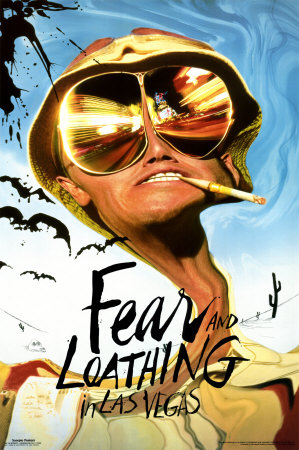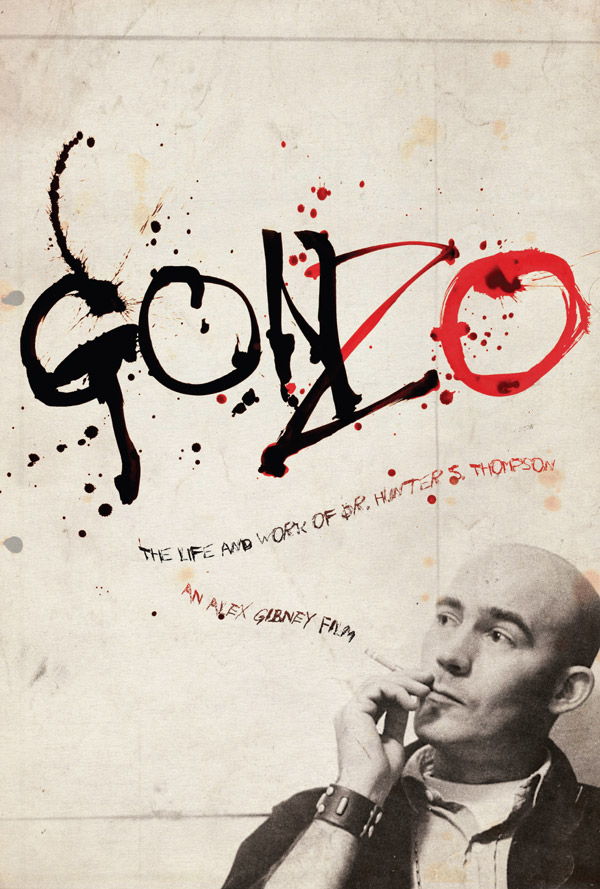EDITOR’S NOTE: Hunter Thompson would have turned 80 today.
 NEW YORK TIMES: HUNTER S. THOMPSON, who has been lionized in two feature films, served as the model for a running character in “Doonesbury” and is the subject of enough doctoral dissertations to build a bonfire, now has a documentary devoted to him, “Gonzo: The Life and Work of Dr. Hunter S. Thompson,” by Alex Gibney. Thompson, who always seemed to keep one drug-crazed eye on posterity behind his ever-present shades, would surely be pleased but not surprised.
NEW YORK TIMES: HUNTER S. THOMPSON, who has been lionized in two feature films, served as the model for a running character in “Doonesbury” and is the subject of enough doctoral dissertations to build a bonfire, now has a documentary devoted to him, “Gonzo: The Life and Work of Dr. Hunter S. Thompson,” by Alex Gibney. Thompson, who always seemed to keep one drug-crazed eye on posterity behind his ever-present shades, would surely be pleased but not surprised.
But how to freshly document the life of a man who was his own Boswell, whose books and articles slavishly documented his own every tic, whoop and hallucination? A journalist who announced his arrival in American letters by riding with the Hells Angels and in the end choreographed a memorial from the grave that made the Burning Man bacchanal seem chaste? Few writers have commodified narcissism so completely — his participatory style of journalism became its own genre and gives the film its title — but still we are invited to sit in the dark of the theater and have a flashback about his flashbacks. When the film opens on July 4, why will people, as Thompson would say, buy the ticket, take the ride?
people, as Thompson would say, buy the ticket, take the ride?
The documentary by Mr. Gibney, who also made “Enron: The Smartest Guys in the Room” and “Taxi to the Dark Side,” does not attempt to work around Thompson’s endless self-consciousness but uses it as leverage instead. Produced by Graydon Carter, the editor of Vanity Fair, and narrated by the actor Johnny Depp, “Gonzo” mirrors the subjectivity and immersion of the journalism Thompson and his trusty arsenal of psychoactive agents perpetrated in Rolling Stone and elsewhere. Mr. Gibney eschews narrative conventions and switches point of view on a dime, creating a prism of interviews and episodes that gradually assembles into a compelling portrait.
In his long-running fever dream about America and its abundant pathologies, the bald man, with the tumbler of whiskey and head full of Schedule 1 narcotics, captured not only a mood — your government is not your friend — but many realities of civic life, most notably that if candidates were willing to do what it takes to get elected, they would probably arrive in office corrupted beyond hope. Thompson, whose defects of character could occupy a separate ZIP code, was not just an original, he was also a patriot and a romantic. Working from the far reaches of the culture and often lucidity, Thompson, who died in 2005 at 67, changed the way that much of America thought about itself, in part because his version of journalism threw a grenade at the bland convention of formal balance and straight reporting. MORE

